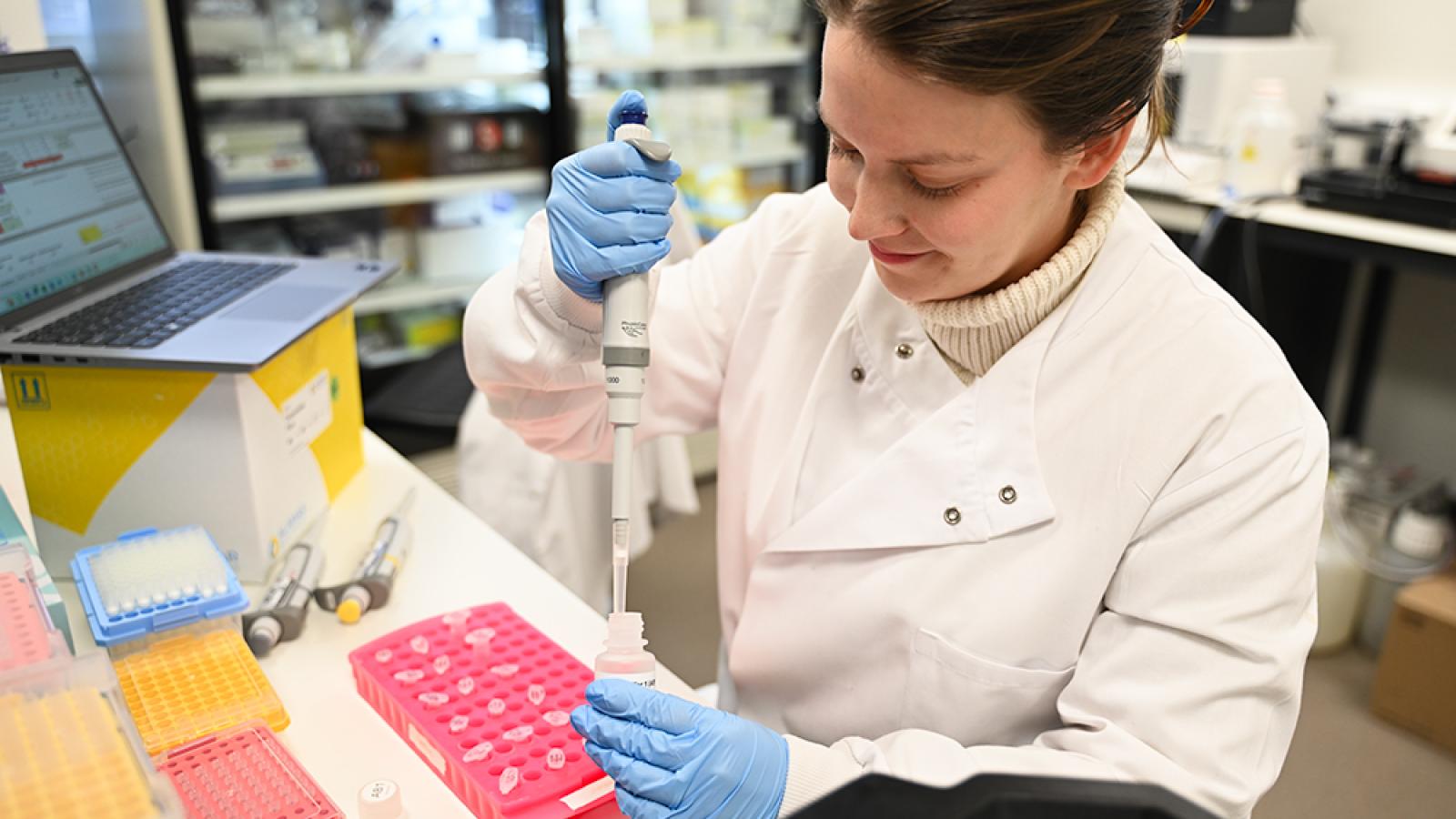Developing better tools to detect brain diseases early
The brain can start changing years, even decades, before people notice any symptoms of conditions like Alzheimer's disease. The Zetterberg Lab is working to develop tests that can detect early warning signs – called biomarkers – of brain diseases, particularly focusing on blood tests that could be done at home or in local clinics.
Currently, only about 2 in 100 people with memory problems receive specialist testing to confirm whether they have Alzheimer's or another condition, as current tests are often invasive and expensive. Using cutting-edge technology at the UK DRI Biomarker Factory – the most advanced academic facility of its kind in the UK – the team is developing ultra-sensitive tests to detect tiny changes in blood and spinal fluid that might signal the earliest stages of brain disease.
These tools will help doctors identify people at risk much earlier when future treatments might be most effective, and support the testing of new treatments in clinical trials. The lab aims to transform how brain diseases are diagnosed and treated, ultimately helping more people access the right care at the right time.
Latest news
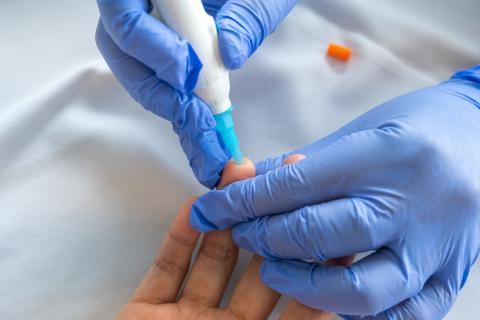


Prof Henrik Zetterberg
Prof Henrik Zetterberg is a Group Leader at the UK DRI at UCL. Find out more about his career and expertise on his profile page.
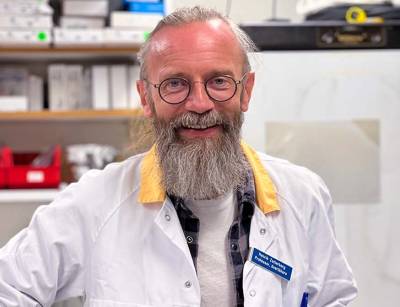
Research summary
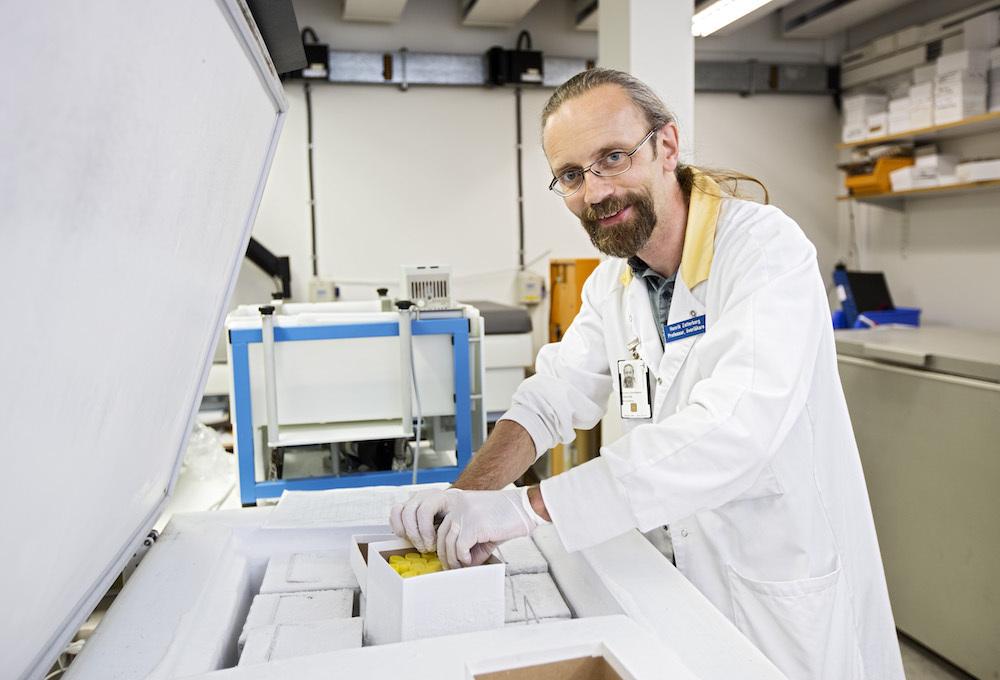
Prof Henrik Zetterberg at his lab in the University of Gothenburg
Credit: Johan Wingborg
Fluid biomarkers for neurodegenerative diseases
The Zetterberg Lab is developing ultrasensitive biomarker assays to detect and monitor neurodegenerative diseases, with a particular focus on Alzheimer's disease (AD) pathogenesis. Their research centres on the measurement of key proteins involved in AD pathology, including amyloid-beta (Aβ), tau, α-synuclein, and TDP-43, in both blood and cerebrospinal fluid.
Using state-of-the-art technology at the UK DRI Biomarker Factory, including the latest Alamar NULISA platform, the team is working to establish reliable fluid biomarkers that can detect disease-specific molecular changes years before clinical symptoms manifest. Their research particularly focuses on understanding the relationship between Aβ accumulation, produced through APP processing by BACE1 and γ-secretase, and subsequent pathological changes including tau hyperphosphorylation and neurodegeneration.
Key research objectives include exploring the mechanisms of Aβ accumulation, investigating the temporal relationship between Aβ toxicity and plaque formation, and developing novel biomarkers for γ-secretase function and microglial activation. The lab is also pioneering the development of at-home blood tests for dementia monitoring and working to validate these novel blood tests for NHS implementation through the Blood Biomarker Challenge.
This work aims to transform clinical trial methodology by providing more sensitive tools for patient stratification and treatment monitoring, while simultaneously developing scalable diagnostic solutions for clinical implementation. As the most experienced academic lab in the UK for fluid biomarker analysis, their research represents a crucial step toward enabling earlier intervention in neurodegenerative diseases and improving the efficiency of therapeutic development.
UK DRI Biomarker Factory
Launched in January 2022, the UK DRI Biomarker Factory is helping us find crucial new ways to detect and monitor neurodegenerative disease.
Biomarkers have huge potential to transform our understanding of disease and the development of therapeutics. Short for ‘biological markers’, they are a measure – or a flag – of a biological state, helping us identify and monitor healthy biological processes or, crucially, harmful changes occurring in disease. Cutting-edge technology now allows for ultrasensitive detection of biomarkers even in very early stages before disease symptoms present.
The work of Prof Zetterberg is trailblazing this area. The high-performance analytical platform now created is used for fluid biomarker development, validation and measurement. It can now also be accessed as a service for other researchers across the UK and beyond.
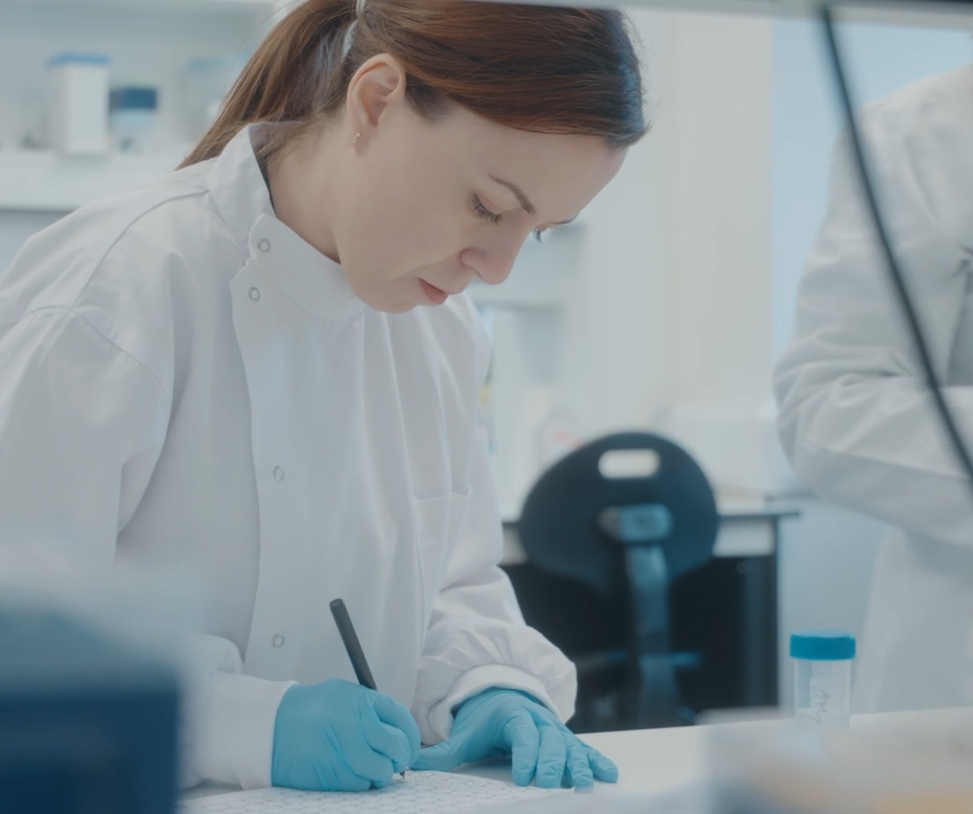
Key publications
Vacancies
Lab members
- Dr Amanda Heslegrave (Principal Research Fellow)
- Dr Aitana Sogorb Esteve (Emerging Leader)
- Dr Eleftheria Kodosaki (Postdoctoral Researcher)
- Dr Barbara Fernandes Gomes (Postdoctoral Researcher)
- Eleanor Crispin (Research Assistant - joint with Dr Aitana Sogorb-Esteve)
- Emily Abel (Research Technician - joint with Prof Nick Fox)
- Owen Swann (Research Technician)
- Sophie Hicks (Research Assistant)
- Rachel Mulvaney (Technician)
Collaborators



Lab funders
Thank you to all those who support the Zetterberg Lab!
